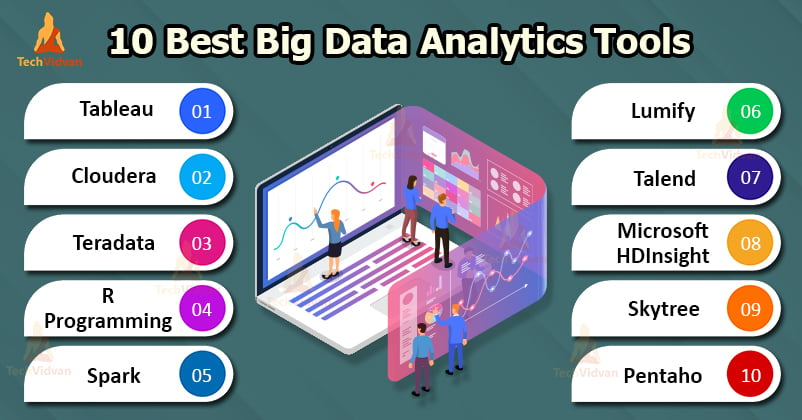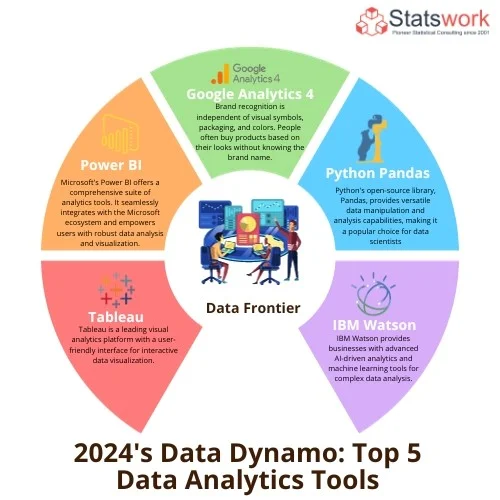Let Loose the Full Potential of Information Utilizing Robust Analytics
Let Loose the Full Potential of Information Utilizing Robust Analytics
Blog Article
Maximize Development: How Analytics Drive Better Approaches
By using data insights, companies can fine-tune their functional approaches, expect market adjustments, and improve client involvement. The obstacle exists not only in collecting data yet in effectively analyzing it to drive tangible results.
Comprehending Information Analytics
Data analytics is a methodical computational analysis of information that enables companies to reveal meaningful patterns and understandings. This process encompasses a variety of techniques, consisting of analytical evaluation, anticipating modeling, and data mining, which jointly intend to transform raw data right into workable details - Analytics. By utilizing these methodologies, companies can make educated decisions that are rooted in empirical proof as opposed to intuition alone
The foundation of data analytics hinges on its capability to manage vast quantities of info from varied resources. This includes structured information, such as data sources, and disorganized information, including social media interactions and customer responses. Through using specialized software and devices, analysts can remove and process this data efficiently, determining patterns and correlations that might not be immediately evident.
Understanding data analytics additionally includes recognizing the importance of data high quality and honesty. Reputable and precise information is vital for purposeful analysis; therefore, companies should implement robust data administration methods. Moreover, the iterative nature of analytics enables continuous refinement and enhancement of techniques, making certain that companies stay dexterous despite transforming market characteristics and customer behavior.
Key Benefits of Analytics

One of the vital benefits of analytics is its ability to give workable insights. Organizations can rapidly assess substantial quantities of data, discovering patterns that may not be immediately noticeable. This helps in preparing for market changes and adjusting strategies accordingly. Furthermore, analytics fosters a culture of evidence-based decision-making, reducing dependence on intuition and guesswork.
One more substantial benefit is enhanced consumer understanding. Analytics devices enable businesses to segment their target market, track customer actions, and customize advertising and marketing initiatives. This targeted technique not only boosts customer involvement however additionally drives higher conversion prices.

Implementing Analytics Strategies
To totally understand the benefits of analytics, organizations should take on organized strategies for execution. This begins with clearly defining purposes that align with wider business objectives. By developing specific, measurable outcomes, companies can focus their analytics efforts on areas that yield the greatest roi.
Following, companies should focus on data administration to guarantee the honesty and security of the information being evaluated. This entails setting up protocols for information collection, storage space, and accessibility while adhering to pertinent policies. Guaranteeing top quality information is important for generating meaningful understandings.
Moreover, promoting a culture of data-driven decision-making is necessary. This needs training staff members to interpret analytics findings and encouraging cooperation throughout departments. When groups recognize the worth of analytics, they are more likely to integrate understandings right into their day-to-day procedures.
Finally, organizations need to on a regular basis assess and improve their analytics methods. The landscape of information and technology is consistently advancing, and staying adaptable will allow organizations to utilize brand-new devices and techniques efficiently. By implementing these organized techniques, organizations can optimize the impact of their analytics efforts these details and drive lasting growth.
Devices for Efficient Analysis
Effective analysis counts on a variety of devices that assist in the extraction of insights from data - Analytics. These devices can vary from easy spreadsheet applications to innovative device discovering systems, each offering an unique purpose in the logical procedure
Information visualization software program, such as Tableau and Power BI, plays a crucial duty in changing intricate datasets right into reasonable graphical representations. These tools enable analysts to determine patterns and trends quickly, permitting even more educated decision-making.
Statistical analysis software application, like R and SAS, uses sophisticated capacities for performing thorough evaluations, including regression, theory screening, and anticipating modeling - Analytics. These attributes equip organizations to attract significant verdicts from their information, identifying possible possibilities and dangers
Additionally, data source management systems such as SQL and NoSQL databases give the essential facilities for saving and quizing big quantities of data efficiently. They make sure go to my blog that data is organized and obtainable for analysis.
Lastly, company intelligence systems integrate different data sources, supplying a comprehensive sight of business efficiency. By using these tools efficiently, businesses can boost their logical capabilities, allowing them to create strategies that optimize development and boost total efficiency.
Situation Research Studies of Success
Effective companies commonly utilize information analytics to drive impactful techniques, as shown by a number of noteworthy case researches. One prominent instance is Netflix, which utilizes sophisticated algorithms to assess visitor choices and habits. By utilizing these insights, Netflix has effectively customized its content referrals, causing raised customer engagement and client retention. Their data-driven method has actually certainly added to their condition as a leading streaming solution.

Additionally, Starbucks utilizes data analytics to establish optimal store areas and improve its product offerings. By examining customer demographics and purchasing patterns, Starbucks successfully recognizes high-potential markets and customizes its menu click here now to local tastes, driving sales and client loyalty.
These study illustrate that effective usage of information analytics can lead to critical benefits, cultivating development and development within companies across different markets.
Verdict
In verdict, the integration of analytics into business strategies significantly boosts decision-making processes and fosters lasting growth. The reliable implementation of analytics tools better supports dexterity and development, allowing companies to navigate competitive landscapes with better accuracy.
Information analytics is a methodical computational evaluation of information that enables companies to uncover meaningful patterns and insights.Recognizing information analytics also entails acknowledging the value of data high quality and honesty. Exact and reliable information is crucial for purposeful evaluation; hence, organizations have to implement robust information governance techniques.Next, companies need to prioritize data governance to make certain the stability and security of the information being analyzed.Effective organizations frequently leverage information analytics to drive impactful approaches, as shown by several notable instance research studies.
Report this page